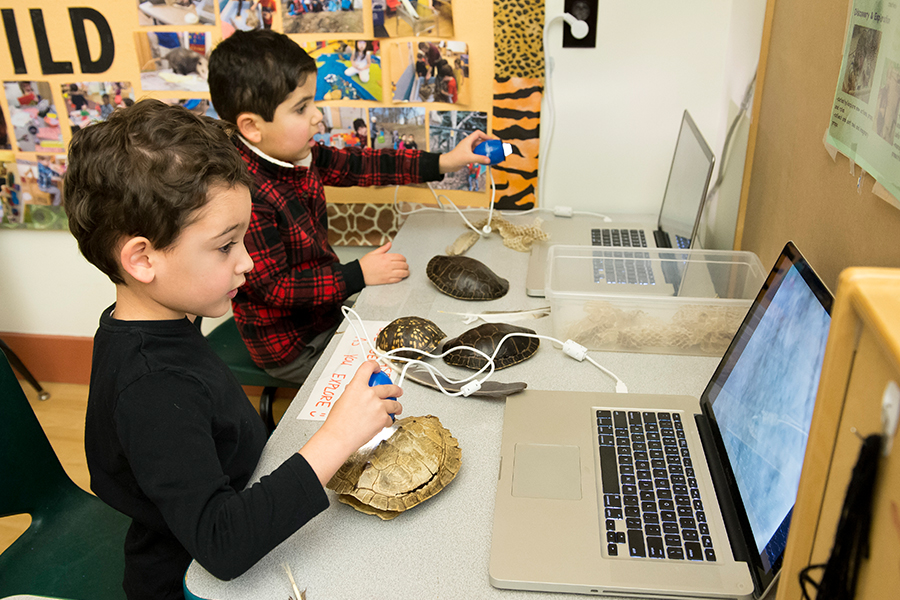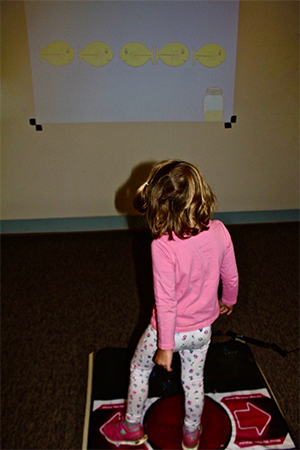
Lab School Educates All Ages
By Ann Lyon Ritchie
Some big discoveries are shaped by the smallest hands thanks to the research taking place at Carnegie Mellon University’s Children’s School.
Making its home in Margaret Morrison Hall and operating under the world-class Department of Psychology in the Dietrich College of Humanities and Social Sciences, the early education program partners in studies on developmental psychology and collaborates in interdisciplinary research.
“CMU developmental psychology students gain an advantage when applying for graduate school because they have classroom research experiences at the Children’s School that other undergraduates generally do not have," said Sharon Carver, director of the Children’s School.
Undergraduate courses at the Children’s School include an observational course on basic child development, a research methods course and a practicum.
“The Children’s School follows detailed policies approved by the university’s Institutional Review Board to ensure ethical research conduct, while also requiring that all studies align with our philosophy,” Carver said.
Research also takes place among faculty and graduate students.
Studies on the development of mathematical thinking by former faculty member Robert Siegler started at the Children’s School in the 1970s and contributed to early math education for decades. A well-publicized 2014 study led by Anna Fisher, associate professor of psychology, found that children learned better in sparsely decorated classrooms compared to bright and busy ones.
Fisher and Erik Thiessen, associate professor of psychology, are working to see how the development of coordination between different regions of children’s brains relates to increases in their core cognitive capacities, including inhibitory control and working memory.
“It’s an extraordinary experience to be able to interact with children at age 3 and then again with those same children at age 5 to see how children mature socially, cognitively and physically,” said Cassondra Eng, a Ph.D. student in the Department of Psychology.
Eng meets with participants multiple times over the course of weeks for her research project on ExerGames—a new generation of interactive digital games that stimulate more active, whole-body gaming experiences—and the development of inhibitory control in children.
The ExerGame in this study projects animations on a wall and involves preschool participants in making choices related to inhibitory control, using a non-slip gaming mat. Short standardized cognitive tasks measure the participants’ inhibitory control abilities before and after playing the ExerGame to detect improvement.
The families see the benefits too, as children engage socially and gain exposure to different projects. Paul Fireman, president of Fireman Creative, has been part of a Children’s School family for two generations.
“I had a very good experience as a child, and my daughters benefitted from a very loving, nurturing, engaging environment,” said Fireman, a member of the first Children’s School class in 1968.
The Children’s School also benefits by gaining new knowledge through a direct connection to the field of developmental psychology where early childhood education has some of its roots.
“I liked that our family participated, and I always asked my children about what they were doing in school. Being part of the research was an advantage,” Fireman said.
Pictured right: The ExerGame in progress.